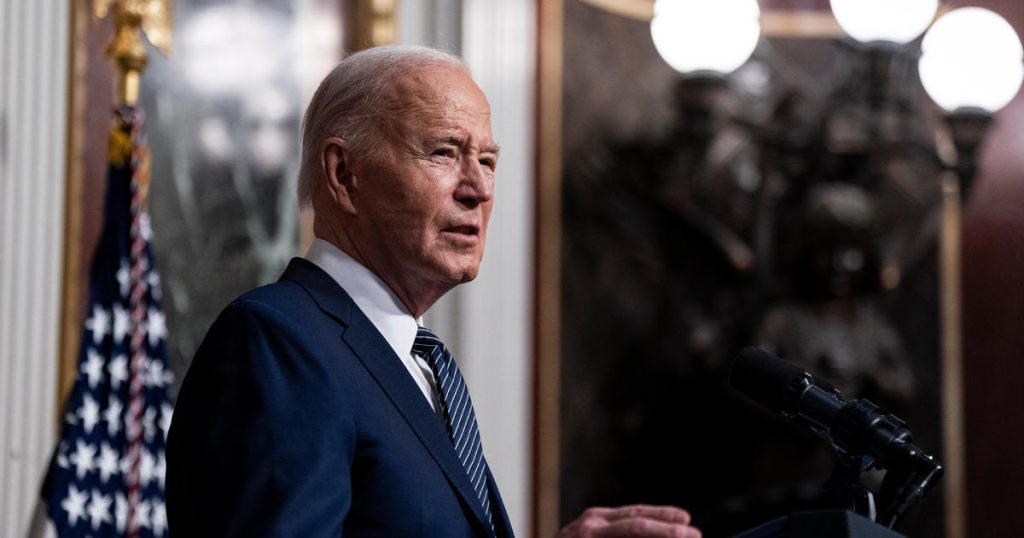The Justice Department has denied a request from two Republican-led House committees for the audio recording of former special counsel Robert Hur’s interview with President Joe Biden. The committees issued subpoenas for the recording and other materials after Hur’s report on Mr. Biden’s handling of classified records, but the department accused them of seeking conflict for conflict’s sake. Hur’s investigation began after classified documents were found in Mr. Biden’s home and office, but no criminal charges were pursued. The Justice Department provided transcripts of the interviews, but did not meet the deadline to provide the audio recording. Assistant Attorney General Carlos Uriarte expressed concern that releasing the audio files to Congress could have a chilling effect on future investigations.
Congressional Republicans argued they needed access to the audio recording for oversight of Hur’s probe and to evaluate Mr. Biden’s conduct, accusing federal officials of withholding information. The House Oversight Committee criticized the administration for refusing to release the audio, demanding transparency from the president. Hur had alleged that the ghostwriter deleted audio files linked to the classified information Mr. Biden shared, but the FBI was able to recover them. The ghostwriter was not charged with obstruction based on the findings. Mr. Biden disputed Hur’s claim about his memory, stating that it was fine. The transcript of the October interview was released before Hur testified before Congress, providing more insight into the conversation between Hur and Mr. Biden.
The House Judiciary and Oversight Committees issued subpoenas for the audio recording and other materials from Hur’s investigation into Mr. Biden’s handling of classified records. Hur did not pursue criminal charges but criticized Mr. Biden’s recordkeeping and memory during the investigation. The Justice Department provided transcripts of the interviews, but declined to release the audio recording to Congress. Republicans accused the administration of withholding information and threatened contempt proceedings against Attorney General Merrick Garland. The Justice Department expressed concern that releasing the audio files could impact future investigations, as witnesses might fear their interviews being made public.
The ghostwriter involved in the case had deleted audio files linked to the classified information Mr. Biden is accused of sharing, but the FBI was able to recover them. The ghostwriter was not charged with obstruction based on the evidence. Mr. Biden and his allies disputed Hur’s claim about the president’s memory, with Mr. Biden stating that his memory was fine. The transcript of the October interview provided a more detailed account of the conversation between Hur and Mr. Biden, revealing that while Mr. Biden had some struggles with dates and words, he also recalled specific details from years earlier. The House Oversight Committee criticized the administration for not releasing the audio recording, demanding transparency and oversight from Congress. A spokesperson for the Justice Department declined to comment on the matter.


